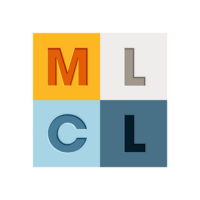State use tax is complimentary to sales tax and is levied on a state-by-state basis. It is generally owed by the purchaser of tangible personal property or certain services when the vendor does not collect sales tax, assuming the transaction is taxable. In these instances, the buyer is required to file a use tax return and remit the use tax. Use tax is often omitted in the context of purchases from out of state vendors who may be unfamiliar with various state and county tax rates. It is important to know when state sales tax is omitted from a purchase and timely file a use tax return when applicable.
What does state use tax apply to?
Generally, the purchase of tangible personal property is subject to use tax if sales tax is not applied at the time of purchase. Common items assessed during audits include:
- Office equipment, computers, scanners, printers, monitors
- Office supplies, such as paper, file folders, and writing instruments
- Office furniture, such as desks, chairs, lamps, and TVs
- Janitorial supplies, such as gloves, towels, mops, and buckets
Use tax also applies to certain taxable services, including:
- Landscaping and snow removal
- Installation and repairs
- Janitorial services and extermination
- Automatic data processing
- Storage
- Maintenance
- Employment placement
What doesn’t use tax apply to?
There are fifty-six (56) enumerated exceptions, with subparts, in the sales tax statute that also constitute exceptions to use tax. Each exemption is very specific and requires an analysis of facts and circumstances. Important exemptions worth mentioning include property acquired to be used directly in, or as an adjunct to, the manufacturing process; food; items sold to governments or charities; and certain utilities unless they are delivered by a broker.
Because of the fact-intensive nature of the exemptions, as well as the particular facts surrounding the uses of purchased products, it is important for businesses to collaborate with their professional advisors to determine use tax liability.
A Use Tax Audit: In a Nutshell
The Ohio Department of Taxation has increased its efforts to identify cases of missed use tax filings. If you receive notice of an audit, contact your professional advisor immediately. Do not ignore the audit notice. Audits can take years, cost thousands in fees, time, and lost opportunities, not to mention the final imposition of a tax liability, with associated interest and penalties. It is critical to enlist an experienced tax attorney that can help you defend an audit.
Compliance Tips to Consider
- Good business practices and document retention are critical to defending an audit. Businesses should document activities in a well-organized manner and properly maintain purchase orders, receipts, sales records, invoices, cancelled checks, and other records.
- An experienced attorney can provide guidance on tax compliance when purchase(s) are made that may be subject to use tax. It is always preferable to avoid an audit entirely by correctly and timely remitting state sales and use tax returns.
For more information or to seek counsel from our Taxation group, please reach out to request a consultation or call us at 216-696-1422.

